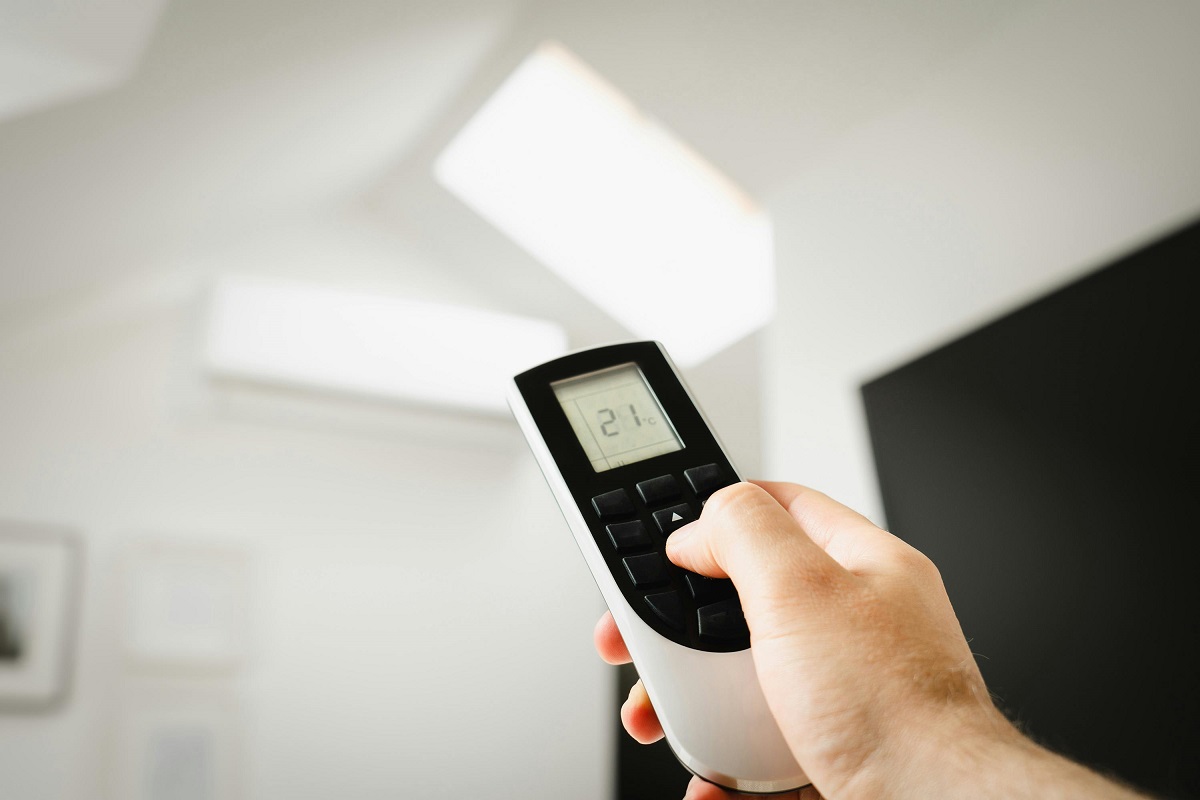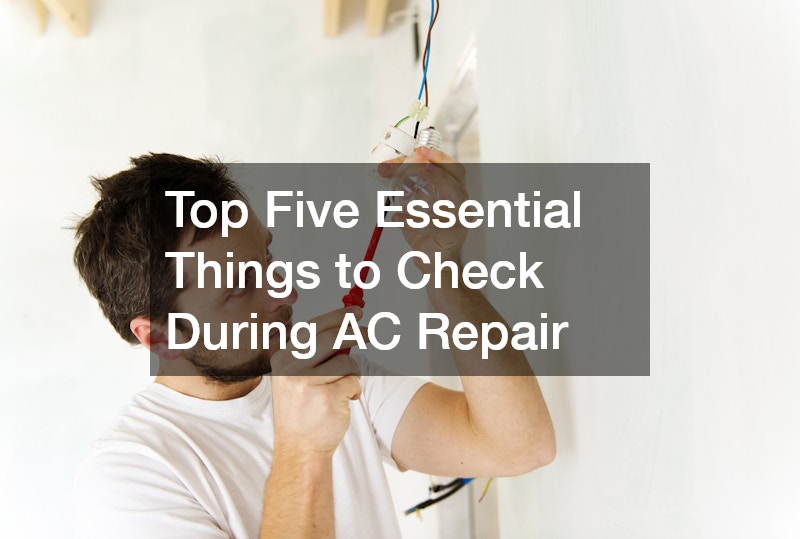A buzzing sound coming from your air conditioner is more than just an annoyance—it often indicates that something isn’t functioning properly. Understanding the possible causes of AC buzzing can help you prevent costly repairs, maintain efficiency, and keep your home cool. This guide covers common reasons your AC might buzz, practical checks, and when to call a professional.
What Does an AC Making Buzzing Noise Usually Mean?
A buzzing sound coming from your air conditioner is often a sign of underlying electrical or mechanical issues. While some causes are minor and easy to fix, others can indicate serious problems that may lead to system failure or costly repairs if ignored. Understanding the type, timing, and source of the buzzing can help you narrow down the cause and take the right action. Here are common buzzing patterns and what they suggest:
Constant Buzzing
A continuous buzzing sound often points to electrical issues, such as a failing motor, capacitor, or wiring problem. It can also indicate a mechanical component that is stuck or struggling to operate. Ignoring this type of buzzing can lead to more serious electrical failures.
Intermittent Buzzing
This type of noise usually occurs when the compressor or fan is trying to start but cannot complete the process smoothly. It may indicate that the system is working harder than it should, which can lead to overheating or further component damage.
Buzzing with Vibration
If the buzzing is accompanied by noticeable vibration, it’s usually a mechanical issue. Common causes include loose fan blades, worn motor bearings, or improperly mounted panels. This type of buzzing can worsen over time if parts continue to rub or shake.
Paying attention to these patterns helps you decide whether the issue is something you can address yourself or if professional service is required.
Could It Be an Electrical Issue?
Video Source
Electrical problems are a leading cause of AC buzzing, often linked to power delivery or starting components. Understanding these issues can prevent further damage or safety hazards. Here are common electrical culprits:
Tripped or Faulty Breakers
If the circuit supplying power to the AC is interrupted or overloaded, the unit may hum without turning on. Resetting a tripped breaker or replacing a faulty one can sometimes resolve the problem quickly.
Capacitor Issues
The capacitor provides the initial surge of electricity needed to start the fan and compressor motors. When it begins to fail, the motor may struggle to start, producing a low buzzing noise, or may not spin at all. Replacing a capacitor requires knowledge of electrical components and safety precautions.
Wiring Problems
Loose, frayed, or damaged wires can create sparks, buzzing, or intermittent operation. This type of issue can be hazardous and should be inspected by a licensed technician.
Safety Tip: Always turn off power to the AC unit at the breaker before inspecting electrical components. If you’re unsure about handling electrical parts, call a licensed electrician or HVAC professional.
Is the AC Fan Causing the Buzz?
The fan in your air conditioner circulates air through the system, and problems here are a common source of buzzing noises. When the fan cannot operate normally, it can create vibrations, buzzing, or humming air conditioner sounds. Potential fan-related causes include:
Loose or Worn Fan Blades
Over time, fan blades can become loose or bent, causing them to hit the fan housing or other components. This produces a loud buzzing or rattling sound.
Motor Struggles
If the fan motor is failing or its bearings are worn, the motor may hum without spinning properly. This puts extra strain on other components and can eventually cause motor failure.
Debris Caught in the Fan
Leaves, twigs, or small objects can lodge in the fan blades or housing, causing buzzing and vibration during operation.
DIY Check:
- Turn off the AC and disconnect power.
- Inspect the fan blades for damage, looseness, or debris.
- Tighten screws and mounts, remove any debris, and replace damaged blades if necessary.
Could the Compressor Be the Problem?
The compressor is essentially the “heart” of your air conditioning system, circulating refrigerant to cool your home. A failing compressor can generate buzzing noises and prevent your system from cooling properly. Here are signs the compressor may be causing the buzz:
- Buzzing occurs specifically when the AC tries to start.
- The unit struggles to cool the space or provides only lukewarm air.
- Frequent tripping of circuit breakers associated with the AC unit.
Important: Compressor repairs are complex and require specialized knowledge. Attempting DIY repairs can be dangerous and may void warranties. Contact a licensed HVAC technician if you suspect compressor issues.
Loose or Worn Components
Sometimes buzzing is caused by simple mechanical wear and tear rather than electrical faults. Loose or worn components can vibrate against each other, creating a buzzing or rattling noise. Common mechanical sources include:
- Screws, bolts, or mounting hardware that have loosened over time.
- Panels or housing parts that aren’t securely fastened.
- Worn-out belts, mounts, or bearings that allow parts to move excessively.
Maintenance Tip: Regularly inspect and tighten screws, bolts, and mounts to prevent buzzing and extend the life of your AC unit.
Dirty Coils or Filters
While dirty filters and coils don’t usually cause buzzing directly, they can create additional strain on your system that leads to noisy operation.
- Clogged filters: Reduced airflow forces the fan and motor to work harder, which can cause vibration and buzzing.
- Dirty coils: Evaporator and condenser coils that are covered in dirt or dust make the compressor work harder, increasing the risk of buzzing noises from mechanical or electrical strain.
Easy Fix:
- Replace or clean air filters every 1–3 months.
- Clean evaporator and condenser coils annually to maintain efficiency and reduce stress on the system.
When to Call a Professional

Some buzzing issues are simple to fix, but others need professional attention. Contact an HVAC technician if you notice:
- Buzzing with burning smells or smoke.
- AC not cooling effectively.
- Persistent buzzing despite basic maintenance.
- Repeated tripping of breakers.
A licensed technician can safely diagnose electrical or mechanical problems and ensure your system runs efficiently.
Quick DIY Fixes for Buzzing AC
Before calling a professional, try these steps:
- Turn off power at the breaker before inspecting the unit.
- Remove debris around the fan.
- Tighten screws and bolts on panels, mounts, and fan blades.
- Replace air filters to improve airflow and reduce strain.
- Inspect the capacitor for swelling or damage (only attempt replacement if experienced with electrical work).
Preventing Buzzing in the Future
Regular maintenance is key to a quiet, efficient AC. Consider these preventive tips:
- Schedule annual HVAC inspections.
- Keep coils and filters clean.
- Regularly tighten screws, bolts, and mounts.
- Ensure the unit sits level to avoid vibrations.
- Use fans or shades to reduce strain on the system.
Wrapping Up
A buzzing AC can signal a range of issues, from loose screws to failing motors or capacitors. Addressing the problem early—through DIY checks or professional service—can prevent more serious damage and costly repairs. Routine maintenance and timely intervention are the best ways to keep your air conditioner running quietly and efficiently.



